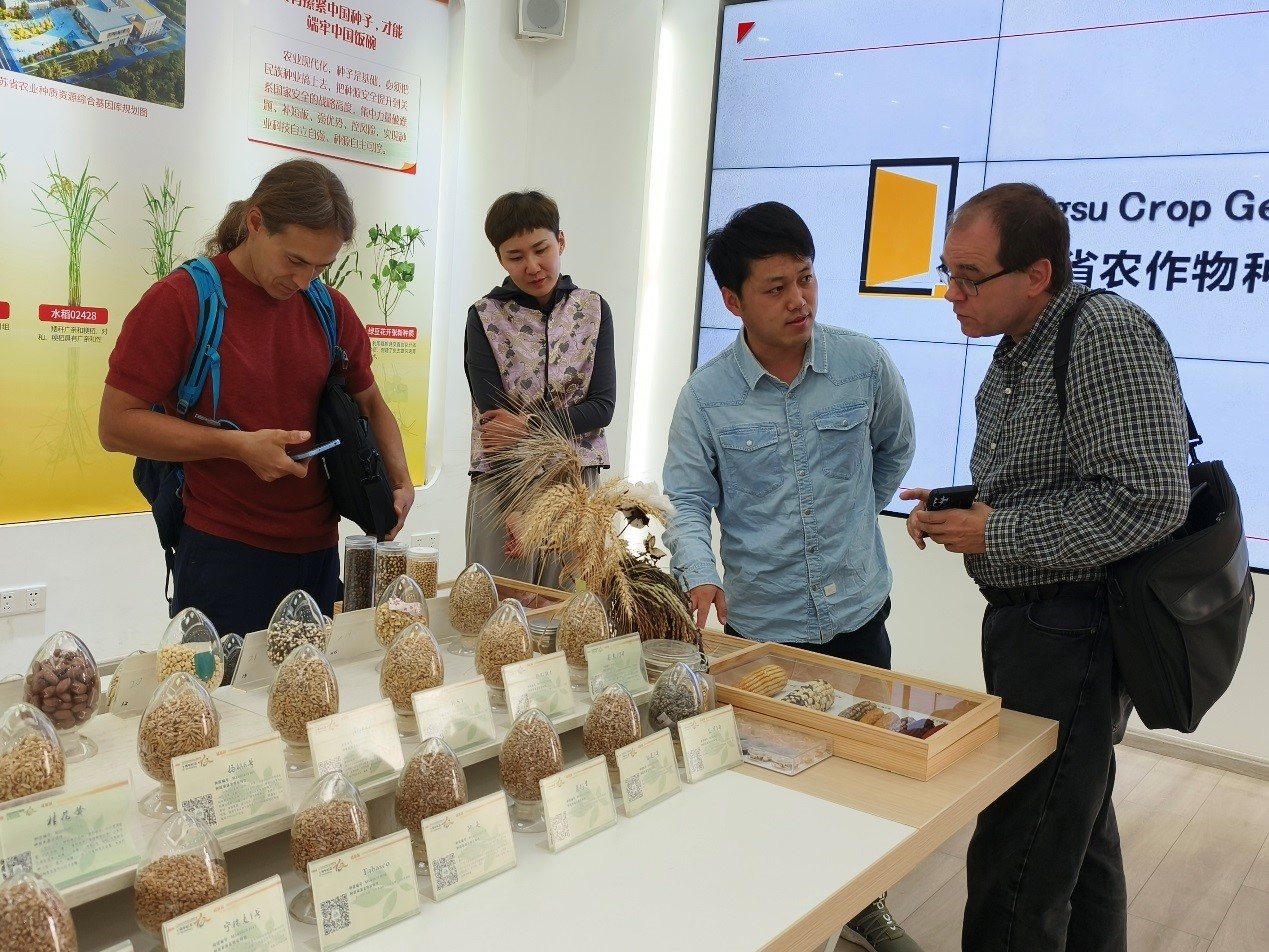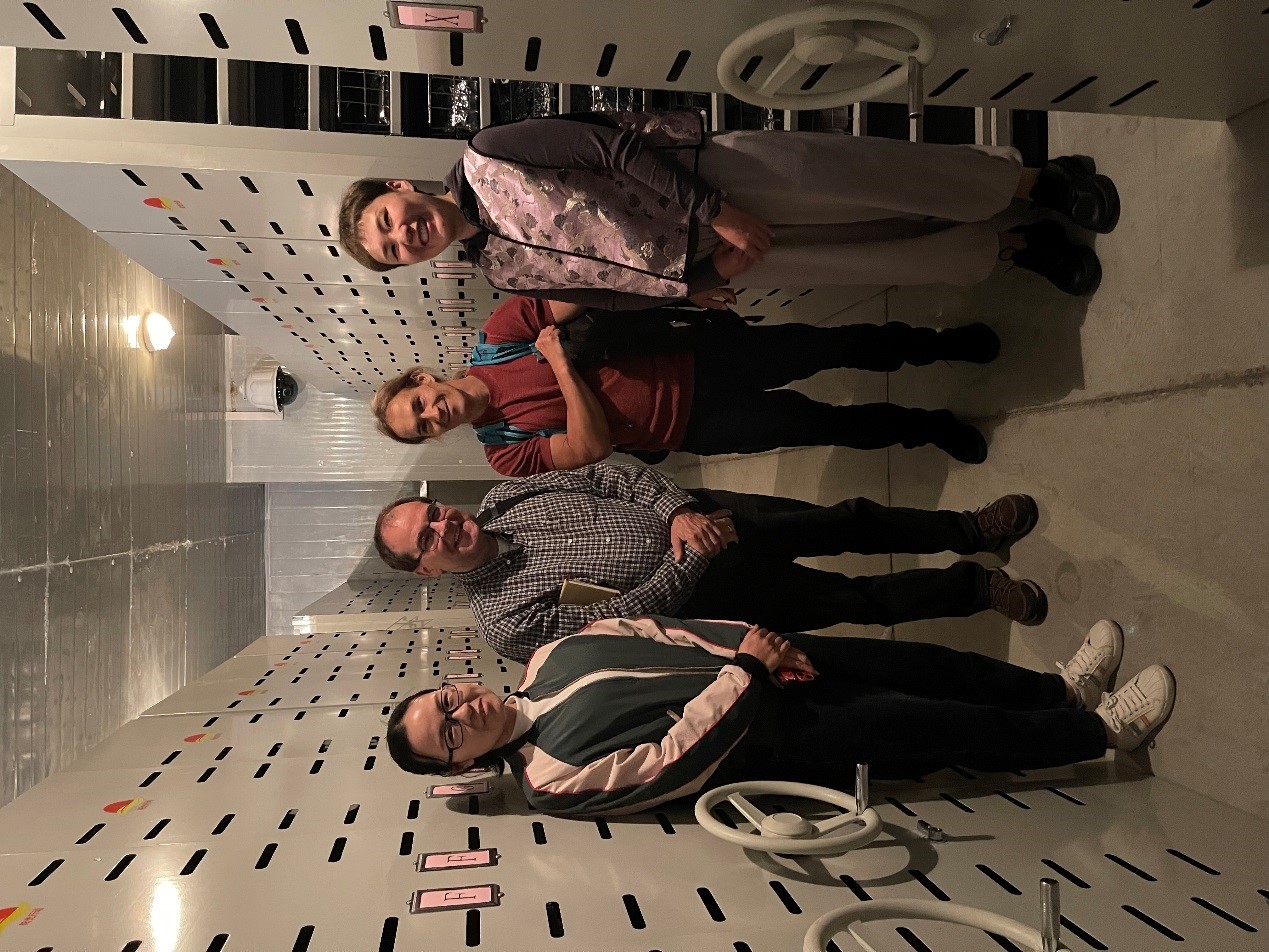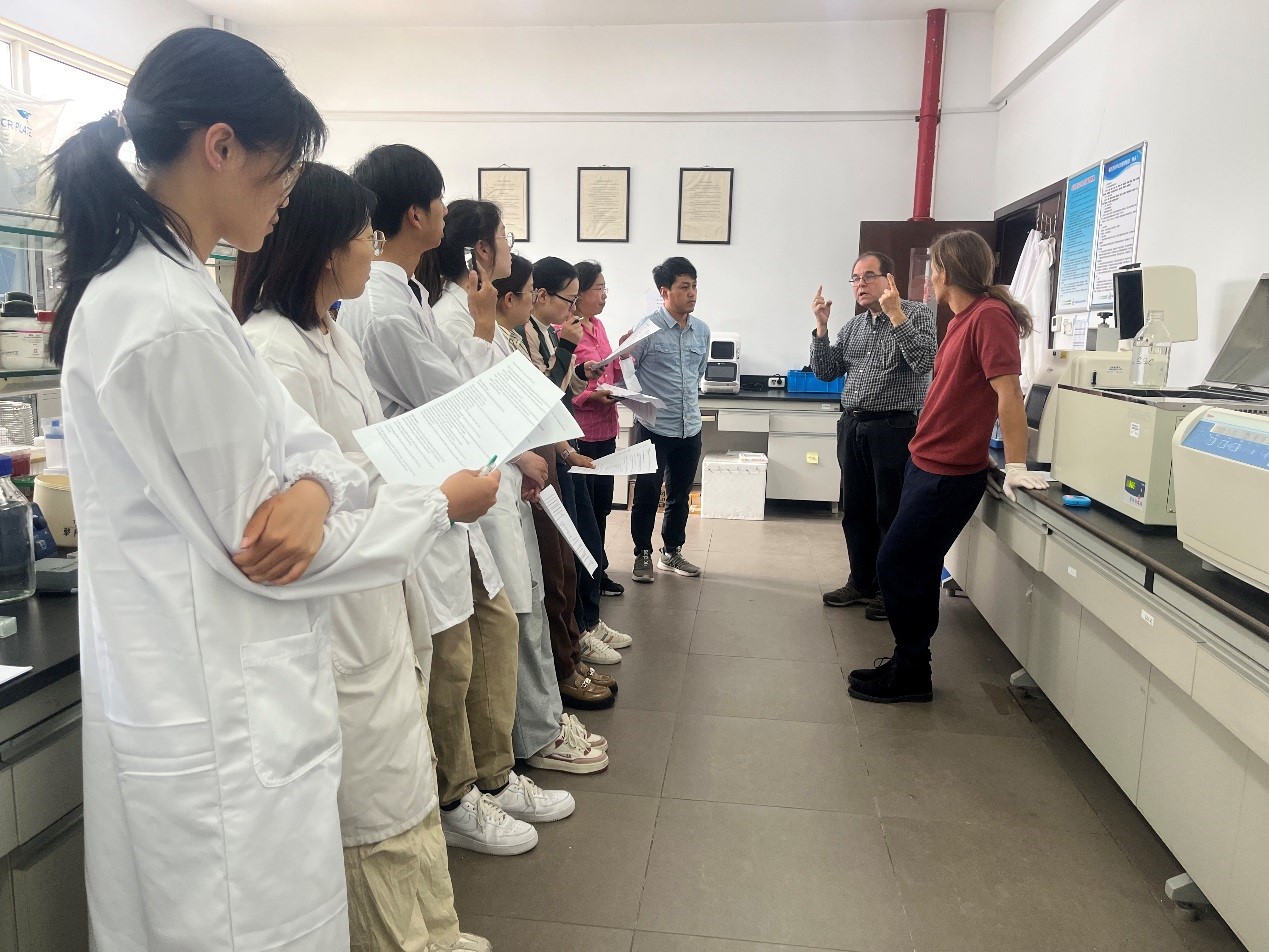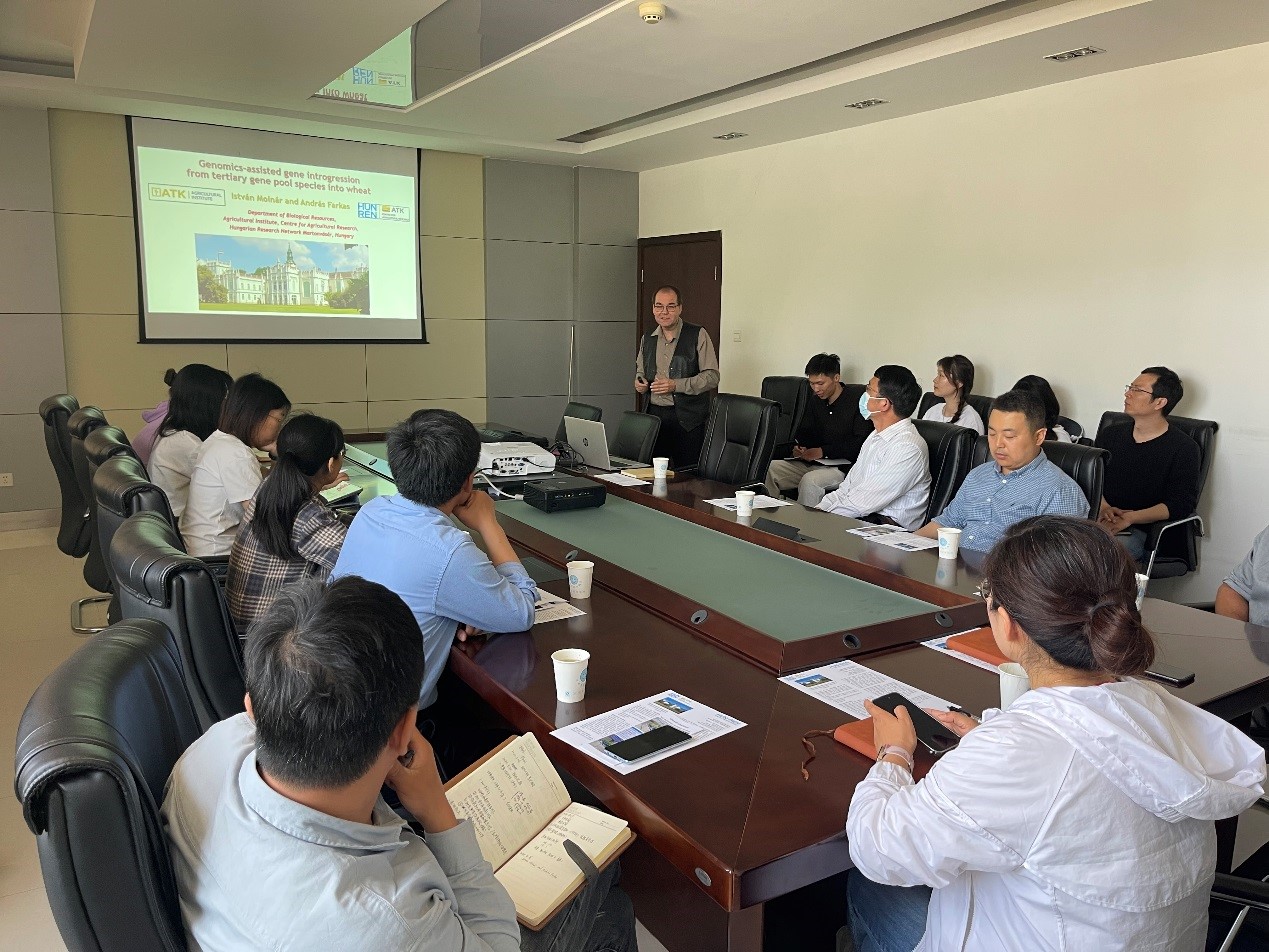With the support of the International Cooperation Fund of JAAS, Prof. Istvan Molnar and Dr. Andras Farkas from Department of Biological Resources, Agricultural Institute, Centre for Agricultural Research, Hungarian Research Network, Martonvásár, Hungary visited Jiangsu Academy of Agricultural Sciences from April 23 to April 30. Prof. Istvan Molnar and Dr. Andras Farkas spoke highly of the scientific research strength and supporting infrastructure of JAAS, after visiting the Institute of Germplasm Resources and Biotechnology, the Crop Germplasm Resources Infrastructure of Jiangsu, the plant growth phytotron, central laboratory of JAAS and Luhe experimental base.
The Agricultural Institute of Centre for Agricultural Research, Martonvásár, Hungary has the largest crop germplasm bank in Hungary, with more than 14,000 crop germplasm resources preserved. Based on these resources, the institute mainly carries out physiology, genetics research and molecular breeding of wheat, maize and other crops. Professor Istvan Molnar is currently the chief of the Gene Conservation group in Department of Biological Resources of the Agricultural Research Institute. His team mainly conducts researches on elite gene mining and wheat introgression breeding, using wheat relatives such as goat grass (Aegilops), wheatgrass (Thinopyrum), barley (Hordeum) and rye (Secale). In recent years, he has presided over four Hungarian national research projects, and participated in five Hungarian national projects and two international cooperative research projects. Professor Istvan Molnar has published 108 papers (H-index of 27) until now, with a cumulative impact factor of 202.9 and more than 2,300 citations. And he was awarded the "100,000th Fellows Award" by the European Union's Marie Skłodowska-Curie Actions program.
During the visit, Professor Istvan Molnar and Doctor Andras Farkas had an in-depth exchange with the wheat germplasm innovative group. Professor Istvan Molnar made an academic presentation entitled "Genomics-assisted gene introgression from tertiary gene pool species into wheat". Doctor Andras Farkas carried out a workshop on GISH and FISH experimental techniques. During the academic exchange activities, the Hungarian and Chinese research teams introduced their recent research progress, respectively and they reached a preliminary consensus on the introduction of elite germplasm resources and future cooperation plans.







